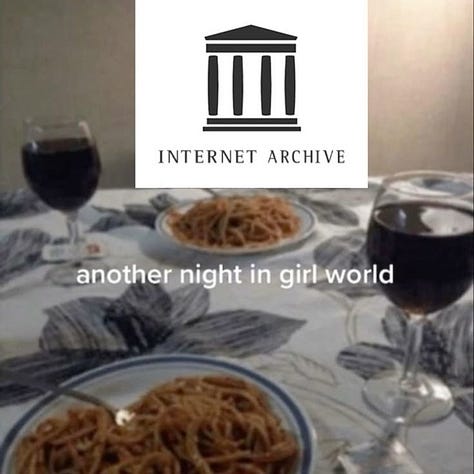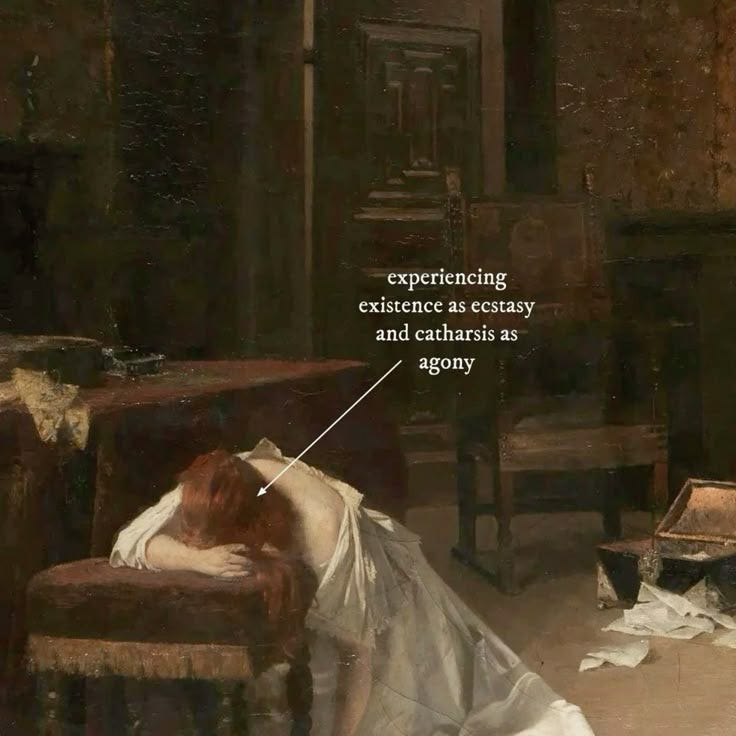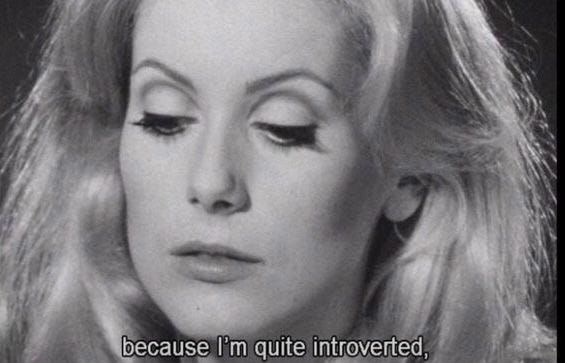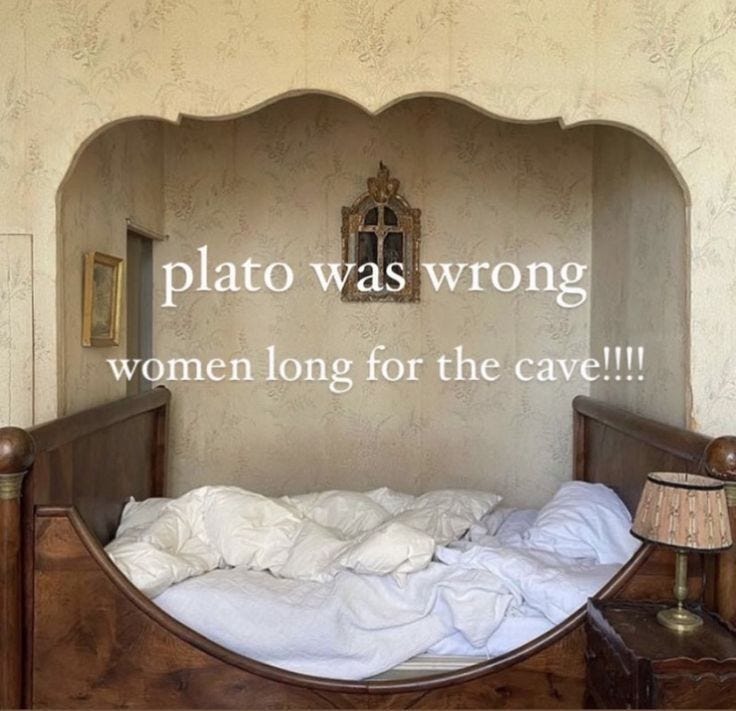hello.
loneliness is often painted as a void—an emotion of absence—yet it has also been perpetually aestheticized.
the sofia coppola-esque it-girls and other sad girls of cinema suggest that within isolation lies a certain profundity—an allure in solitude, a quiet promise that by embracing our aloneness, we might uncover deeper truths about ourselves and existence.
i write this as a sad girl—perpetually melancholic, prone to longing, an observer who finds meaning in the quiet ache of solitude.
but real loneliness is not poetic. it is heavy, dull, suffocating—the absence of everything. it is not cinematic, not tragic in a way that makes you feel special, but rather an all-consuming silence that refuses to let you turn away. and that is precisely why we aestheticize it—because the raw, unfiltered weight of loneliness is too much to bear.
(this post is free, but if you enjoy this newsletter, consider becoming a paid subscriber—your support not only helps me keep writing but also means the world to me)
heidegger understood this. he argued that loneliness is not just something we feel but something that is inherent to our existence. we are thrown into the world without choice, without preparation, and no matter how much we surround ourselves with people, we remain fundamentally alone in our experience of being. we can share moments with others, but no one else can think our thoughts, understand our emotions, or experience our death. our solitude is not a phase; it is the structure of our being.
this idea is central to heidegger’s concept of geworfenheit or “thrownness”—which captures the unsettling reality that we do not choose the conditions of our existence. we are cast into a world that was already in motion, with histories, languages, and cultures we must navigate without ever having consented to the game in the first place. our relationships with others, our societies, and even our self-understanding are all shaped by circumstances beyond our control, yet the burden of interpreting and making sense of our own existence falls on us alone and it is our responsibility to navigate the world around us.
heidegger distinguishes between superficial loneliness, which is the everyday feeling of missing company—and the deeper existential solitude that defines human existence. he argues that we often seek distraction from this solitude by immersing ourselves in the collective— a concept he calls das man or “they,” or the impersonal, anonymous force of societal norms and expectations. by losing ourselves in social roles, routines, media, and entertainment, we avoid confronting the raw reality of our isolation. but this is inauthentic. for heidegger, true authenticity comes from embracing the solitude of our being and from acknowledging that no one else can live or die in our place.
as an introvert, solitude has always felt like a refuge—something nourishing, not just necessary. i’ve spent much of my life seeking quiet spaces to inhabit, finding comfort in being alone with my thoughts. but even for those of us who thrive in solitude, loneliness is something different. solitude is chosen; loneliness is imposed. and when solitude stretches too far—when it stops feeling like a sanctuary and starts feeling like absence—we are forced to confront the reality that no amount of aesthetic framing can make isolation feel like connection.
the concepts we’ve discussed thus far are made most clear in heidegger’s discussion of death. for heidegger, no one else can die for us. while others may grieve, remember, or even carry forward our legacy, the moment of death is an event that belongs to us alone. this is the ultimate solitude, the final proof that existence is an individual burden. but instead of despairing over this, he suggests that being-toward-death— living with full awareness of our inevitable end— allows us to live more authentically. when we accept that our time is finite and that no external force can give our life meaning, we are free to create meaning on our own terms.
heidegger doesn’t just describe solitude; he elevates it. loneliness is not something to be escaped or feared—it is the condition that makes self-awareness, authenticity, and meaning possible. solitude is where we face our truest self, unshielded by the noise of social expectations. it is in solitude that we reckon with the unfiltered realities of our being. far from an affliction, this existential aloneness is the foundation of what it means to be human.
so, how does this play into the romanticization of loneliness? in this case, we seek distraction in noise, in connection, in routine. and when those fail us, we soften the edges of our solitude by turning it into something palatable. we dress it up, put a filter on it, and make it appear intentional. loneliness is no longer something we suffer from, but something we choose, or at least that’s the illusion we sell ourselves.
the moment we aestheticize loneliness is the moment we refuse to experience it. we keep it at a distance, turning it into something external rather than something that lives inside us. the curated image of solitude—the writer alone with their thoughts, the wanderer lost in contemplation—is not solitude at all. it is a performance, a way of controlling something that in reality leaves us powerless.



in a world where our lives unfold online, loneliness has become both magnified and aestheticized—social media offers constant connection, yet we are lonelier than ever, caught between hyper-visibility and isolation, performance and absence.
but what happens when the performance ends? when solitude ceases to be something beautiful and becomes something simply there? we have no language for it. no way to soften it.
when the illusion fades, we are left with something raw and unfamiliar— something we don’t quite know how to hold. without the cinematic framing, loneliness becomes something shapeless and enigmatic—a dull weight and quiet absence that lingers in the corners of ordinary days. we lose the language for it because we have only ever known it as something romantic, tragic, or profound. but real loneliness is none of those things. it’s letting the phone ring because answering feels like too much effort. it’s walking home at night and realizing no one is expecting you. it’s scrolling through messages without the energy to respond. it’s silence that does not beg to be filled, only endured.
and this is why we resist it—because real loneliness does not make us feel special. it does not offer revelation or transformation. it just exists, indifferent to whether we acknowledge it or not. so we reach for distraction, for connection, for a version of solitude that is curated and controlled. but in doing so, we deny ourselves the one thing loneliness demands of us: to simply sit with it, without dressing it up, without making it mean anything more than what it is.
romanticized loneliness is a coping mechanism. it is how we make peace with something we cannot escape. but in doing so, we rob solitude of its power. heidegger believed that true authenticity comes from confronting our isolation without illusion, without dressing it up.
so what is the alternative? if we strip away the aesthetic, the curated sadness, the poetic framing, what remains? nothing but the truth of our own existence. nothing but ourselves, sitting in the weight of it. and that, perhaps, is the one thing we are most afraid of.
perhaps the real question is not why do we romanticize loneliness? but what happens when we stop trying to make it beautiful and just let it be?
books for reflection and deeper study:
being and time by martin heidegger – the foundation of the essay’s discussion on geworfenheit and being-toward-death.
stoner by john williams – a beautifully melancholic novel about a quiet, isolated life filled with unspoken longing and resignation.
the sickness unto death by søren kierkegaard – explores despair, self-deception, and the struggle of becoming one’s true self.
nausea by jean-paul sartre – a deeply existential novel on isolation and the absurdity of existence.
the myth of sisyphus by albert camus – an essential read on meaning-making in a meaningless world.
the world as will and representation by arthur schopenhauer – a bleak but fascinating dive into the nature of suffering and the human condition.
mrs. dalloway by virginia woolf – explores interiority, existential loneliness, and the fragmentation of self.
no longer human by osamu dazai – a crushingly honest, semi-autobiographical account of loneliness and self-destruction.
i who have never known men by jacqueline harpman – a stark, haunting novel about a woman’s experience of total isolation.
the book of disquiet by fernando pessoa – a fragmented, poetic meditation on solitude and the estrangement of self.
franny and zooey by j.d. salinger – a subtle exploration of intellectual isolation and spiritual disillusionment.
the lonely city by olivia laing – a stunning exploration of solitude in urban spaces, art, and alienation.
a season in hell by arthur rimbaud – a poetic descent into solitude and existential agony.
the trouble with being born by emil cioran – fragmented, poetic meditations on the futility of existence and the burden of consciousness.
okay, that’s all i have for you today.
if you’re not ready to become a paid subscriber and you have the capacity to leave a tip, that would be so appreciated.
i love you.
bye.
(follow ig, tiktok, youtube, pinterest and spotify for more)








Another great essay. The last few essays you wrote were just phenomenal.
I absolutely love the line you draw between solitude and loneliness -- solitude is chosen, loneliness is imposed. Beautiful as always, Caitlyn!